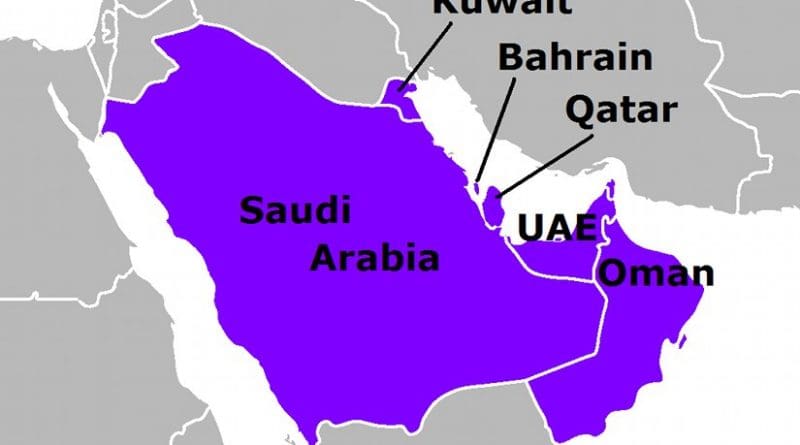How The GCC Can Bolster Horn And Red Sea Security – OpEd
By Arab News
By Abdel Aziz Aluwaisheg*
Discussions on security in the Horn of Africa and Red Sea region have shown that that while many countries and organizations are interested in the issue, closer cooperation is needed to make their efforts more effective.
While foreign minister of Saudi Arabia, the late Prince Saud Al-Faisal, consistently made the case at Gulf Cooperation Council meetings for a GCC African strategy, with an initial focus on the Horn of Africa and the Red Sea region, as an integral part of Gulf security. His efforts led to the adoption of a comprehensive strategy in 2015, which used a wider-than-usual concept of security, calling for greater trade and investment, and cultural exchanges as essential elements of a broad political and security engagement.
The new strategy also called for trilateral cooperation between the African and GCC sides, together with international and regional partners to deal with transnational issues, including terrorism, piracy, human trafficking, illegal migration, weapon smuggling and drug trafficking. International expertise, practical cooperation and funds are needed to overcome these threats.
Behind this approach is a recognition that a vicious cycle exists between political instability, poor governance, economic deterioration and the breakdown in security. Terrorists and criminals operating in the region work with global extremist groups and organized crime. As such, closer cooperation between countries and organizations in the region and beyond is needed to counter that alliance.
What could the GCC bring to the table of international cooperation for the benefit of the security, stability and prosperity of the region? I will suggest just four elements.
First, the GCC could lead by example, demonstrating the benefits of cooperation. Today, combined gross domestic product in the GCC is about $1.8 trillion, making it the 10th-largest economy globally and among the highest-ranking states in economic and human development.
But it was not always like that: In 1981, GCC GDP was less than $200 billion and some of its states were lagging in many development indicators. The UAE’s GDP alone rose from less than $50 billion in 1981 to over $400 billion this year, an eight-fold increase, with a sophisticated infrastructure, skilled labor force and high education and health standards. Its expertise in infrastructure and real estate development is renowned worldwide.
Other GCC states have had similar experiences. Through instruments of integration (a free trade area, a customs union and common market, among many) GCC states have managed to transform an underdeveloped region to a vibrant community of states with some of the highest social and economic indicators.
One example of integration that could easily be extended beyond GCC borders is the common market for electricity. The GCC Interconnection Agency completed the GCC grid in 2009 it can extend it to markets outside. Discussions to extend it to southern Iraq are at an advanced stage. In November, it signed an agreement with Jordan and Egypt to explore a similar extension. Extension to other countries could also be explored.
Second, the GCC is a significant source of investment, expertise and innovation, which could benefit the wider region. GCC states are also among the largest donors. They could partner with other donors to provide more sustainable and effective development and humanitarian aid.
Third, over the past 38 years, the GCC has established a robust collective security system, crowned in November 2018 with the appointment of Gen. Eid Al-Shlewi as general commander of the GCC Unified Military Command (GUMC). This week, the GUMC signed a headquarters agreement with Saudi Arabia formalizing their relationship. Overseen by the joint chiefs of staff, the GUMC coordinates the work of all military services. In terms of troops, equipment and training available to the GUMC from member states, its resources are formidable. There are gaps, but these are manageable.
The GCC security architecture is based on collective defense. A mutual defense treaty concluded in 2000 stipulates that GCC security is indivisible and obliges all member states to act jointly to repel external aggression. The GCC emergency summit held in Makkah last May and the recent summit held in Riyadh on Dec. 10 both invoked this treaty. Joint action has intensified as a result.
Counter-terrorism is an important part of that security architecture. Several GCC organizations, including the Abu-Dhabi-based GCC Police (GCCPOL), work together to target and apprehend suspected terrorists, both foreign and domestic. GCC states also have made strides in countering terrorism financing. In 2017, a center was set up in Riyadh for that purpose.
The GCC region has also become a leader in combating violent extremism, with about a dozen centers dedicated to that effort. Some of these are able to lend their expertise outside the region. For example, the UAE-based Hedayah recently helped set up a similar center in Djibouti to serve nearby states.
The fourth element is the GCC’s web of useful and reliable partnerships with other countries and organizations around the world, many of which are interested in the Horn and Red Sea region. The GCC is able to organize meetings, seminars and investment conferences focused on the security and prosperity of that region.
- Abdel Aziz Aluwaisheg is the GCC’s assistant secretary-general for political affairs and negotiation, and a columnist for Arab News. The views expressed in this piece are personal, and do not necessarily represent those of the GCC. Twitter: @abuhamad1

